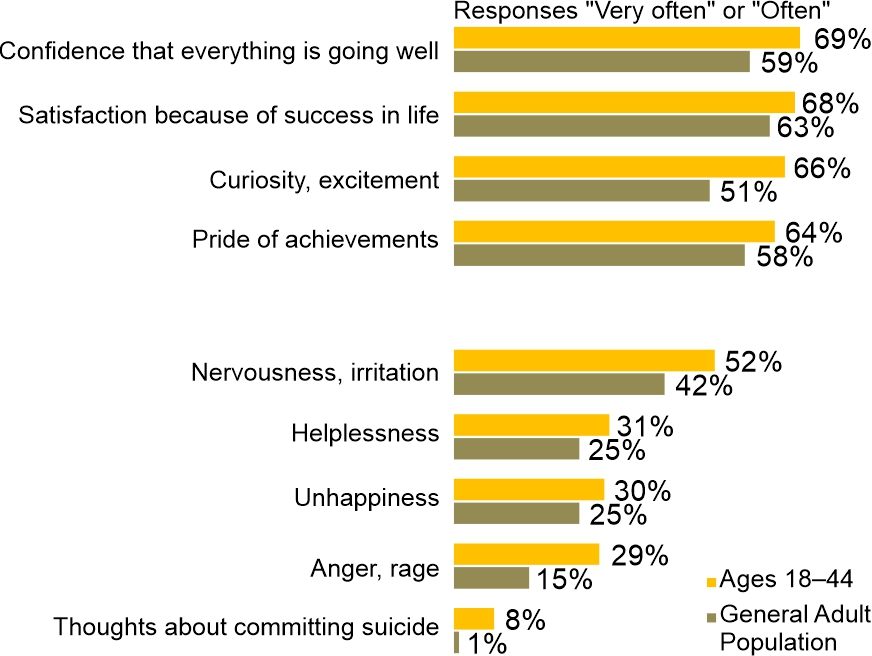The mental condition of young Poles
Author: Michał Feliksiak
|
2025-06-24
In a survey conducted in autumn, we took a closer look at the youngest generation of adult Poles, namely Generation Z (ages 18–29) and the slightly older Generation Y (ages 30–44), also known as "millennials," who served as a reference point. Many journalistic materials have been published about the youngest Poles, reinforcing various stereotypes about them: they are portrayed as exceptionally irresponsible, not seriously considering professional obligations or starting a family, immersed in the world of social media, lonely, oversensitive, and mentally unstable, etc. In our survey, we wanted to determine how much these entrenched perceptions correspond to reality and whether the youngest Poles differ significantly from the previous generation. We began by examining their mental condition.
We asked respondents to indicate whether and how often they experienced various emotional states. Since we regularly conduct the same surveys on a sample of the general adult Polish population, comparisons were possible. It turned out that respondents from both Generation Z and Y experienced both negative and positive emotions more frequently than the general adult population. This applies to "pleasant" states such as excitement (15 percentage points difference), feeling that everything is going well (10 p.p.), pride in one's own achievements (6 p.p.), and satisfaction (5 p.p.), as well as "unpleasant" states like anger (14 p.p.), irritability (10 p.p.), helplessness (6 p.p.), and feeling unhappy (5 p.p.). Particular attention should be paid to the scale of experiencing suicidal thoughts, which are reported to occur eight times more frequently by young respondents than among the general adult population (8% vs. 1%).
How often in the past year have you experienced the following feelings?

Representatives of Generation Y reported feeling lonely (9 points difference) and unhappy (8 p.p.) significantly more often than those from Generation Z and also felt overwhelmed by the decisions to be made (7 p.p.). Moreover, they experienced feelings of everything going well and pride in their achievements less frequently during the twelve months preceding the survey than the older generation.
Respondents were also asked to assess their mental health. Three-quarters (74%) described it as good, one-fifth (20%) as fair, and one in twenty (5%) as poor. Among younger respondents, representing Generation Z, negative assessments of mental health were recorded twice as often as among those from Generation Y.
How would you generally assess your current mental health?

More information about this topic can be found in CBOS report in Polish: “The mental condition of young Poles", June 2025. Fieldwork dates for the sample: October and November 2024, N=1573. The random sample is representative for adult population of Poland aged 18-44.




